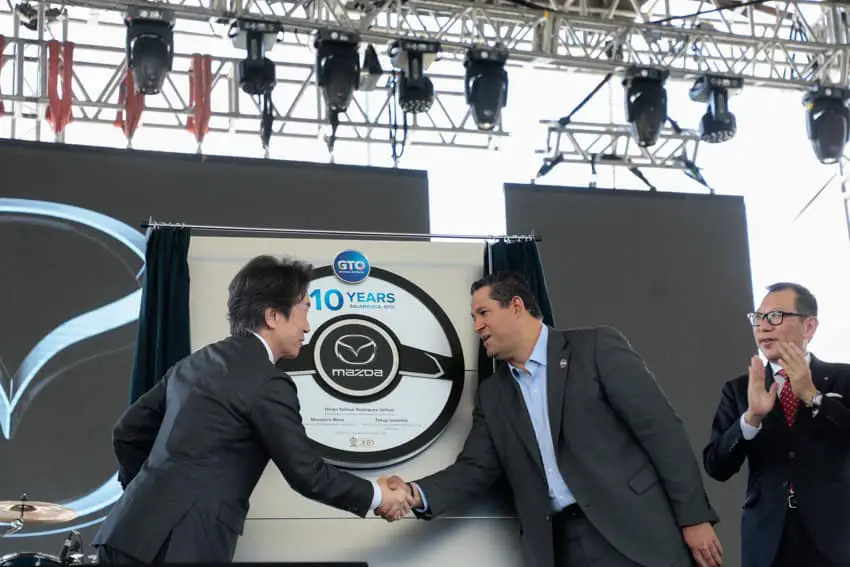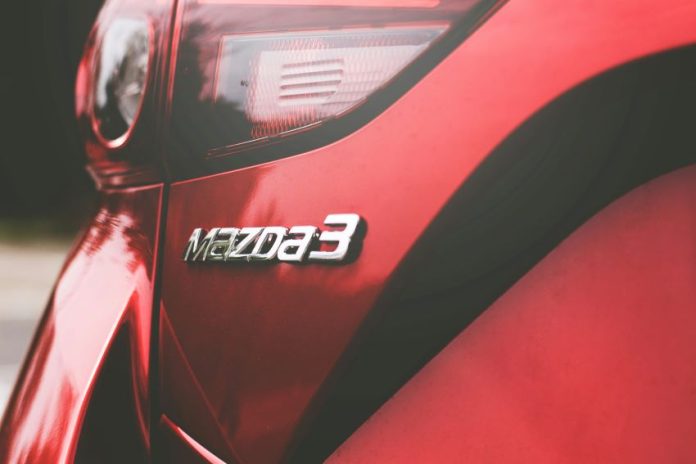Japanese auto manufacturer Mazda is reportedly reconsidering its investment strategy in Mexico over uncertainty related to tariff threats made by U.S. President-elect Donald Trump.
Mazda México director Miguel Barbeyto said the auto company would institute an undisclosed “Plan B” if Trump applies the threatened 25% tariff on goods from Mexico, according to Bloomberg News in a report on Wednesday.

“We want to continue investing in [Mexico],” Barbeyto told Bloomberg but admitted that it would not be profitable for Mazda to go forward with plans until there is more clarity.
Mazda’s shares dipped as much as 0.4% in early Tokyo trade on Thursday.
Two weeks ago, the news agency Reuters published a report on automakers and other major manufacturers Mexico who will face difficult decisions regarding investments and existing operations here.
Reuters reported that Mazda exported around 120,000 vehicles from its plant in Guanajuato state to the U.S. in 2023 — about 30% of the company’s U.S. sales volume. This represents about 70% of the vehicles it produced in Mexico, according to Bloomberg.
One-quarter of the cars Mazda produces here are sold domestically, and the remaining 5% is shipped to Canada, Colombia and Central America.
Mazda is on pace to produce a record 210,000 vehicles this year in Mexico, roughly 8,000 more than it produced in 2023.

A chilling effect on automaker investment in Mexico
A growing number of auto companies — including Tesla and the multinational manufacturer Stellantis — have either paused or are said to be reconsidering Mexico investment plans as a result of the tariffs Trump has threatened to levy upon taking office on Jan. 20, 2025.
Barbeyto said tariffs are particularly worrisome for auto manufacturers who rely on thousands of parts that cross borders multiple times before final assembly is completed. Still, he said he was confident that the U.S. and Mexican governments would negotiate an acceptable solution.
Even though Mazda has a Plan B ready, Barbeyto said the company is “working to continue growing in [Mexico], both in manufacturing and in the sale of new vehicles.”
Tom Donnelly, the chief of Mazda’s U.S. operations, told Bloomberg that Plan B could involve shifting some of its Mexico operations to a plant Mazda runs jointly with Toyota Motor Corp. in Alabama.
Last week, Mexico’s Economy Minister Marcelo Ebrard met with auto industry chiefs, asking them for information to help Mexico strengthen its negotiating position. According to Barbeyto, who attended the meeting, Ebrard also reportedly asked the auto companies to find ways to substitute components they currently buy from China for parts made in North America.
Last month, Ebrard told reporters that the United States would be shooting itself in the foot if it imposed a 25% tariff on Mexican exports. He warned that a trade war — President Claudia Sheinbaum has strongly implied that she would respond with retaliatory tariffs — would negatively impact some of the most important North American companies, particularly automakers General Motors, Stellantis and Ford.
With reports from Bloomberg News, El Financiero and Reuters
